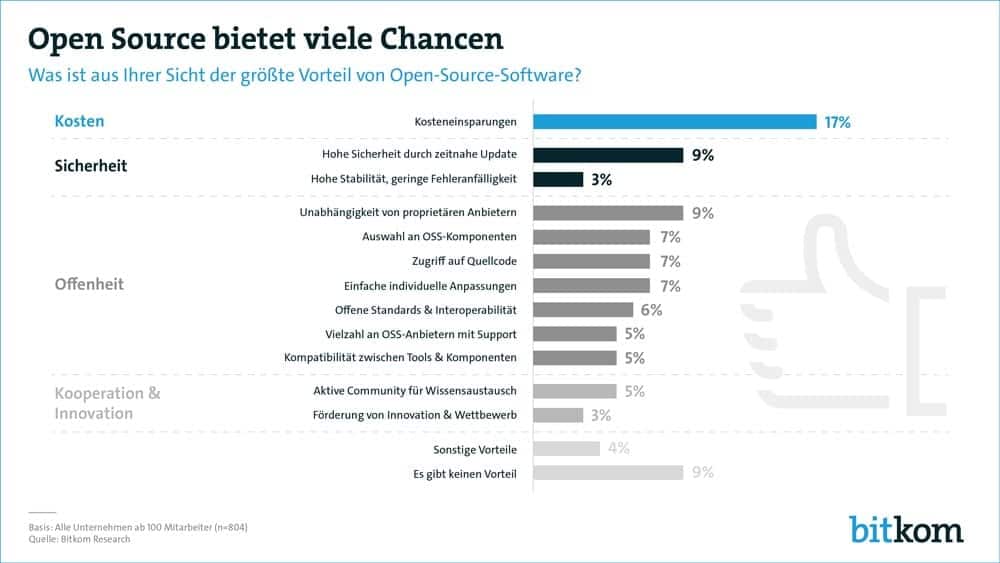![[shutterstock.com: 76385980, kentoh]](https://e3mag.com/wp-content/uploads/2020/04/shutterstock_76385980.jpg)

Medium-sized companies are showing particular interest in open source. The potential is clearly recognized: Financial savings through the elimination of licensing costs, high security through regular and timely updates, and the openness and flexibility that are key drivers of innovation all speak in favor of the open source approach. What is lacking, however, is a strategy for deployment.
German SMEs are currently behaving more like classic consumers of open source. What is missing is active participation in open source projects.
This lack of commitment is made particularly clear by one figure in the study report: only about two out of ten companies have an open source strategy.
In the context of rapidly advancing digitalization, it is more important than ever that companies begin to leverage the advantages of open source software as a strategic factor for innovation. Modern technologies such as big data and data analytics, artificial intelligence, the Internet of Things and edge computing, containers, cloud or DevOps are inconceivable without open source.

Basis: all companies with 100 or more employees (n=804) | Source: Bitkom Research 2019
Open source software therefore forms the basis for a successful digitization strategy in both medium-sized and large companies. In addition to independence from individual manufacturers, open source enables the implementation of innovations through its development dynamics and flexibility, thus ensuring competitiveness.
The lack of strategy is due to the shortage of skilled workers throughout the IT industry. Without well-trained, reliable employees, it is difficult to develop a sustainable strategy.
Although Germany is no exception in a comparison of countries, a lot could be done in the area of schools and vocational schools, adult education and universities to increasingly build up open source competence: IT education should therefore increasingly make open source content the basis of the curricula in addition to the existing focus on standard products.






